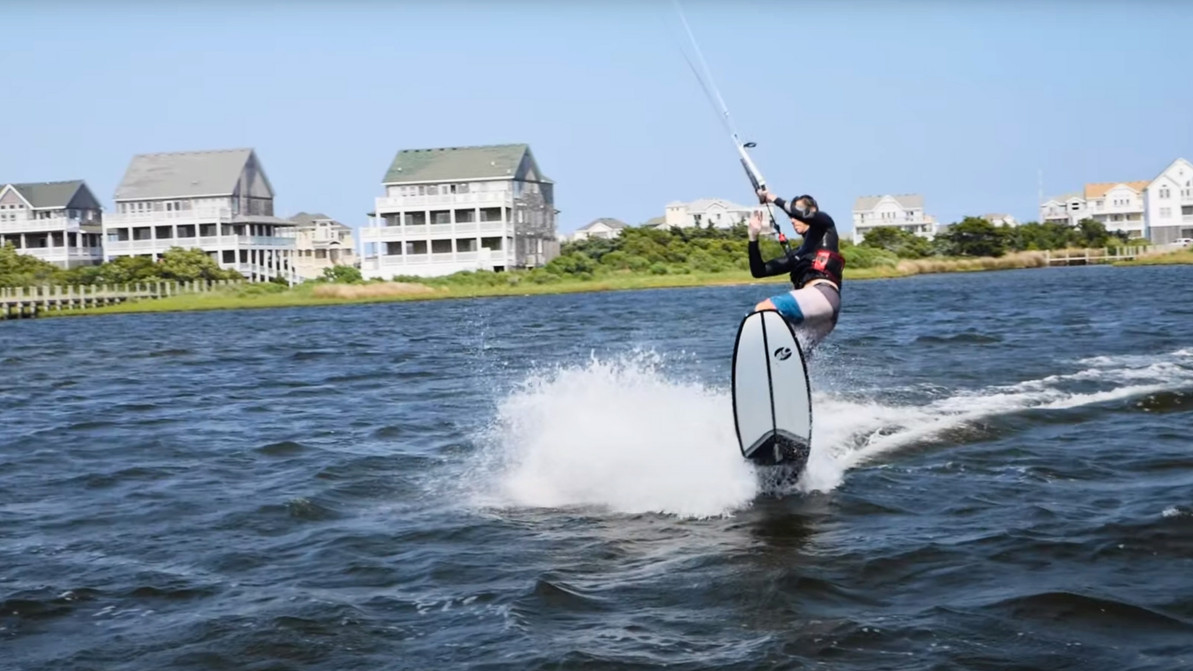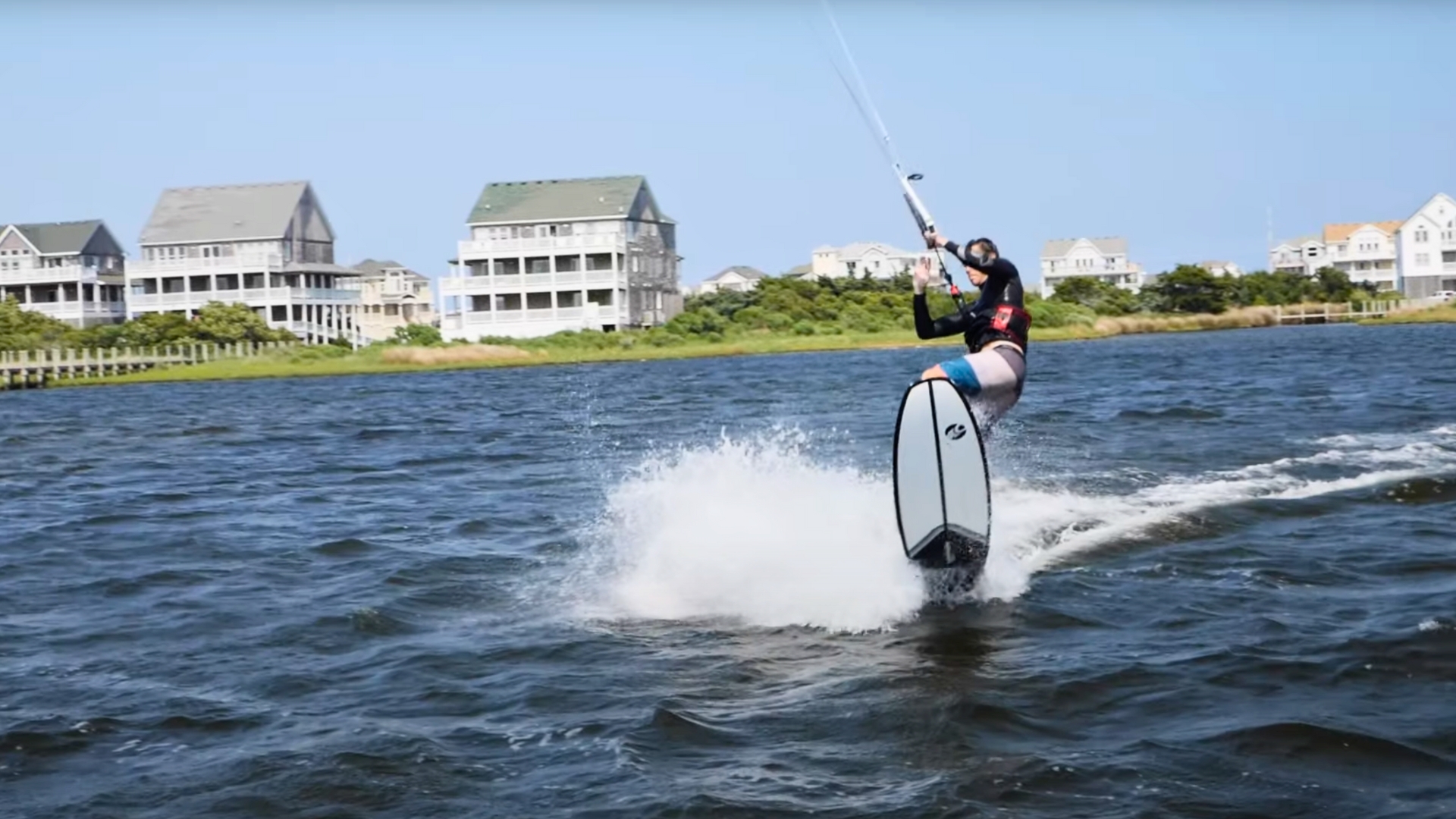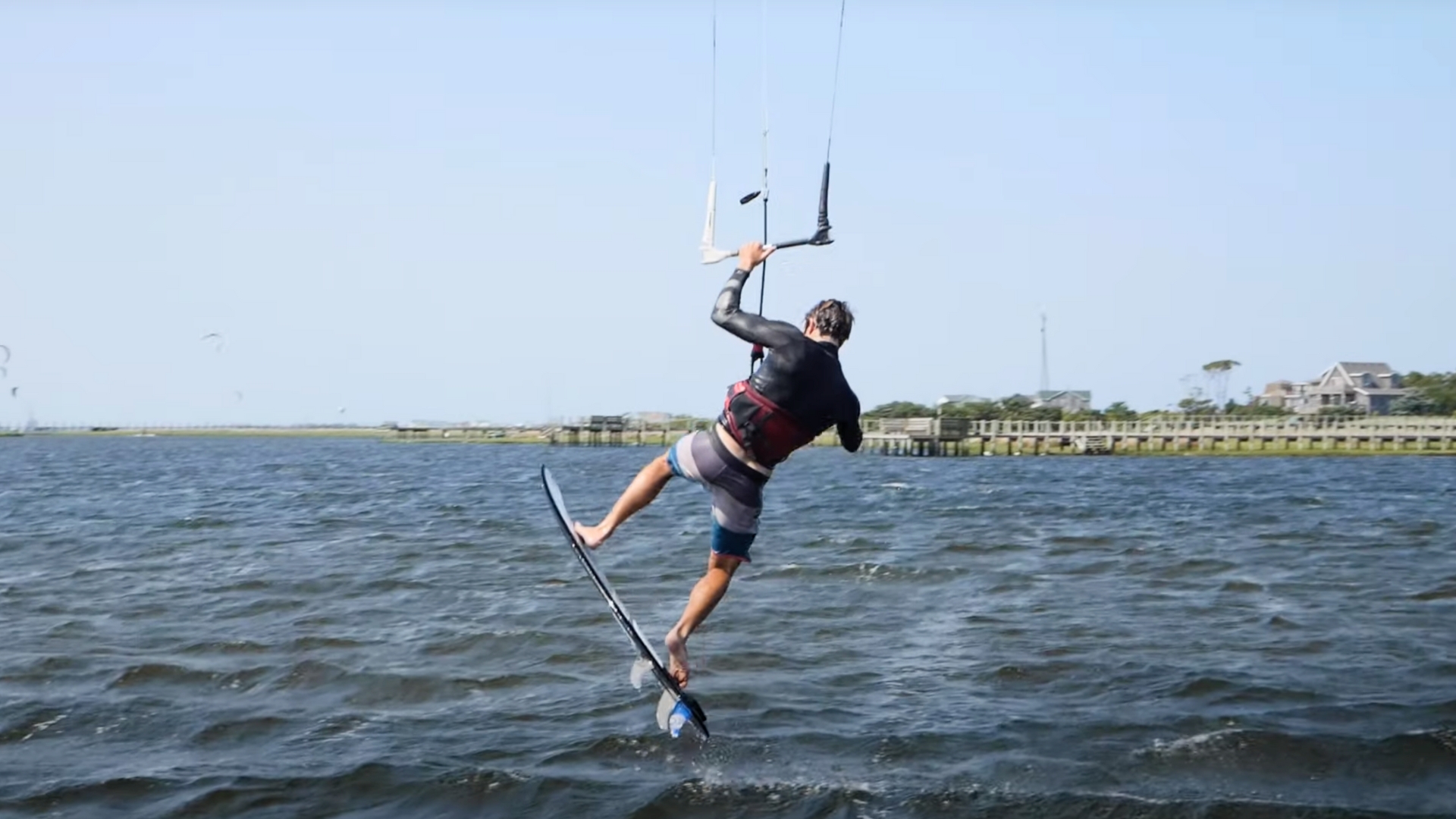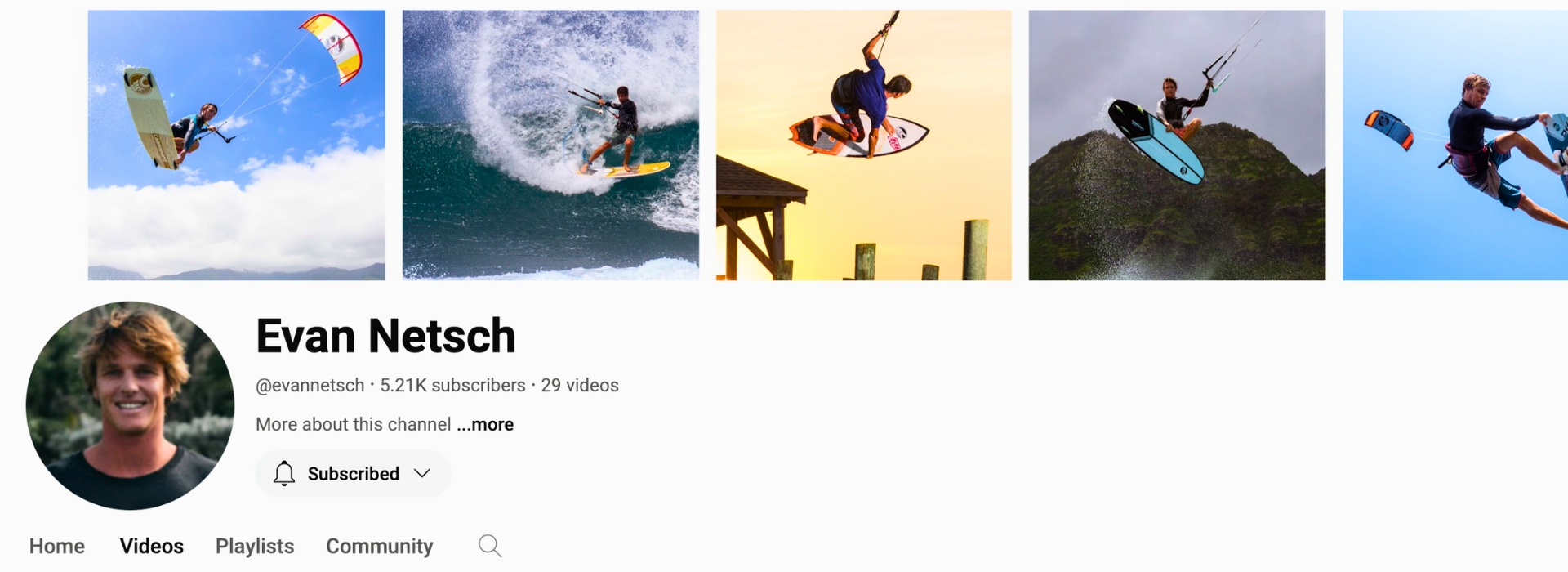Kitesurfing Progression | How to Perform Strapless Airs on Your Surfboard, with Evan Netsch
Introduction to Strapless Airs
Strapless kitesurfing offers a unique challenge compared to traditional strapped methods. It involves more balance, control, and technique, making it a rewarding experience for those who master it. According to Evan, performing a two-foot air on a surfboard can be as thrilling and rewarding as a 25-foot air on a twin tip.
Choosing the Right Gear
Lightweight Surfboards
A lighter board is crucial for strapless airs, especially in light wind conditions. Here are some of our favorite kite surfboards to get the job done: North Comp, Cabrinha Flare, and Duotone Whip.
Kite Selection
Choosing a kite that offers significant depower is essential, as it helps keep the board stuck to your feet during jumps. Avoid C-kites or heavily freestyle-oriented kites that generate excessive pull and sit forward in the wind window. Most modern, surf kites, like the Cabrinha Drifter, Duotone Neo, and North Carve will be awesome for learning strapless airs with.
Ideal Conditions for Practice
For beginners, starting in stronger winds is advisable as it simplifies the jumping process. A wind speed around 15 miles per hour, using a suitable kite, such as a 14-meter size, can offer the necessary lift and control.
Technique for Performing Strapless Airs
Positioning and Kite Handling
- Speed and Direction: Ride at a comfortable speed and point the board's nose slightly into the wind to generate lift.
- Kite Position: Keep the kite high but not past 12 o'clock. Sheet out to manage the lift without aggressive kite movements.
The Takeoff
- Engaging the Lift: As you approach your takeoff point, sheet in to create lift while simultaneously carving upwind. Position your feet for stability, placing more weight on the back foot.
- Board Orientation: Ensure the nose of the board lifts first, catching the wind underneath to aid in lift.
In the Air
- Maintaining Connection: As you ascend, balance the kite's power and the lift from the board to keep the board glued to your feet. Adjust sheeting based on wind strength and your ascent.
- Board Manipulation: Bend your knees and adjust your legs to control the board's position. If necessary, straighten your legs slightly to re-catch the board.
The Descent and Landing
- Controlled Descent: As you descend, orient the tail of the board into the wind, converting it into a landing position with the nose pointed slightly downwind.
- Landing: Sheet in upon touchdown to engage the kite for a smoother and controlled landing, ensuring the board lands with the nose off the wind to maintain forward momentum.
Conclusion: Practice and Progression
Strapless airs require meticulous control over both the kite and the board. Evan emphasizes the importance of gradual practice, starting with lower jumps and progressively tackling higher ones. Each session enhances your control and confidence, ultimately allowing you to perform more impressive and higher jumps.
Keep Learning and Evolving
Evan Netsch's detailed breakdown not only offers a practical guide to mastering strapless airs but also motivates kitesurfers to push their limits. For more insights and tips on kitesurfing, subscribing to Evan’s tutorials can provide ongoing support and inspiration for all skill levels.
By following these expert tips and dedicating time to practice, kitesurfers can enjoy the exhilarating feeling of soaring over the water, strapless, adding a thrilling chapter to their kitesurfing adventures.
Follow Evan Netsch on YouTube!
Recent Posts
-
Kiteboarding Tricks | How To Do A Backroll Hat Drag
You can use a little creativity to switch up even the more basic tricks and add a little f …26th Jul 2024 -
KT Ginxu Step-Bottom and Foil Drive Systems | A Perfect Match?
The step-bottom feature of the KT Ginxu foilboards is a big help in releasing the surface te …24th Jul 2024 -
Starboard Ace Air Inflatable Wing Foilboard Review
It's Wing Wednesday, and today Tucker's got an inflatable foilboard, the 2024 Starboard Ace …23rd Jul 2024







